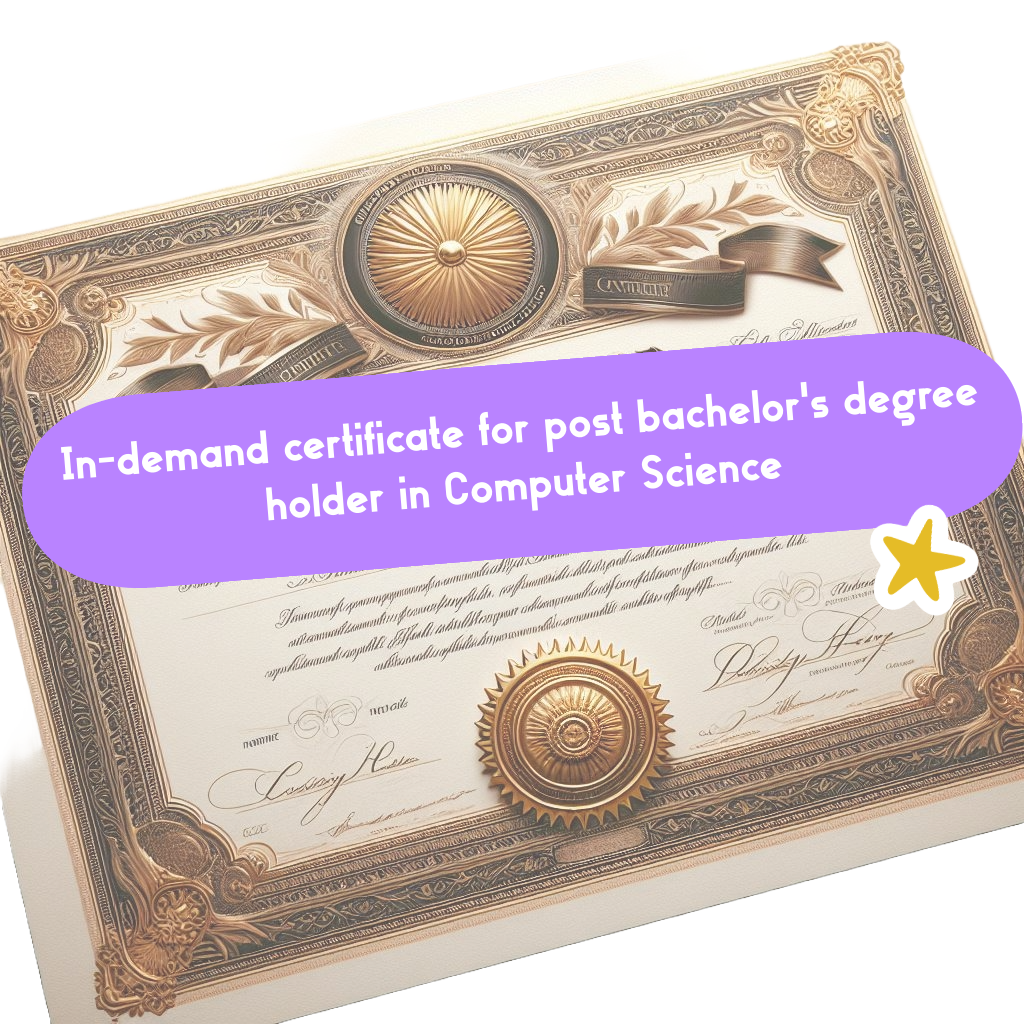One way to enhance your skills and qualifications in computer science is to obtain a certification that demonstrates your proficiency in a specific area or technology.
There are many types of computer science certifications available, depending on your interests, goals, and level of experience. Some of the most in-demand and widely recognized certifications are:

– AWS Certified Solutions Architect – Associate: This certification validates your ability to design and implement scalable, secure, and cost-effective solutions using Amazon Web Services (AWS), the leading cloud computing platform. To earn this certification, you need to pass a 130-minute exam that covers topics such as AWS architecture, networking, security, storage, and deployment. You also need to have at least one year of hands-on experience with AWS.
– Certified Information Systems Security Professional (CISSP): This certification is a global standard for IT professionals who work in information security, risk management, and governance. It demonstrates that you have the knowledge and skills to design, implement, and manage a secure and resilient IT infrastructure. To earn this certification, you need to pass a 180-minute exam that covers eight domains of security practice, such as security and risk management, asset security, security engineering, and identity and access management. You also need to have at least five years of cumulative paid work experience in two or more of the eight domains.
– Google IT Support Professional Certificate: This certification is designed for beginners who want to start a career in IT support. It covers the fundamentals of IT, such as hardware, software, networking, troubleshooting, customer service, and security. The certificate consists of five online courses that can be completed in about six months. You can also earn a dual credential from Google and CompTIA by taking the CompTIA A+ exam after completing the certificate.
– Microsoft Certified: Azure Developer Associate: This certification verifies your ability to design, build, test, and deploy cloud applications and services using Microsoft Azure, one of the most popular cloud platforms. To earn this certification, you need to pass a 180-minute exam that covers topics such as Azure development, Azure storage, Azure security, Azure integration, and Azure monitoring. You also need to have at least one year of experience developing scalable solutions using Azure.
– Python Institute Certified Entry-Level Python Programmer (PCEP): This certification demonstrates your proficiency in the Python programming language, one of the most versatile and widely used languages in computer science. To earn this certification, you need to pass a 45-minute exam that covers topics such as data types, operators, control structures, functions, modules, and input/output operations. You also need to have a basic understanding of Python syntax and semantics.
– IT Information Library Foundations Certification (ITIL): This certification covers the best practices for IT service management, such as service design, service transition, service operation, and continual service improvement. It can help you improve the quality and efficiency of IT services and processes. To earn this certification, you need to pass a 60-minute exam that consists of 40 multiple-choice questions.
– Software Engineering Master Certification (SEMC): This certification demonstrates your advanced skills and knowledge in software engineering, such as software requirements, software design, software construction, software testing, and software maintenance. It can help you lead complex software projects and mentor other software engineers. To earn this certification, you need to have at least four years of software engineering experience and pass a comprehensive exam that covers 11 knowledge areas.
– Google IT Automation with Python Professional Certificate: This certification teaches you how to use Python, one of the most popular programming languages, to automate common IT tasks, such as working with files and directories, analyzing data, interacting with web services, and developing web applications. It also covers the basics of Git and GitHub, troubleshooting, and configuration management. The certificate consists of six online courses that can be completed in about six months.



